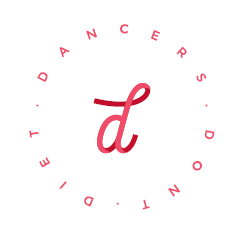RED-S (Relative Energy Deficiency in Sports)
What is RED-S?
RED-S stands for Relative Energy Deficiency in Sports. RED-S is an “impaired physiological functioning caused by relative energy deficiency, and includes but is not limited to impairments of metabolic rate, menstrual function, bone health, immunity, protein synthesis, and cardiovascular health” (IOC).
RED-S in Dancers
More than 1 in 3 male dancers and 1 in 2 female dancers have RED-S (statistics come from gendered studies which haven’t included gender fluidity). And yet, less than 1 in 3 dancers are aware of it, and only about 50% of the teachers and health professionals are confident to diagnose it.
What makes Dancers vulnerable to RED-S?
There are a few factors unique to dancers that make them vulnerable to RED-S, and these include:
Training load
Insufficient breaks and rest
Pursuit of thinness
Lack of education
Treatment of RED-S
The good news is that RED-S can be treated. The treatment involves improving the individual’s nutritional status, to be in a positive energy balance where the body can handle the load of the training.
What does treatment of RED-S with a dietitian look like?
At DDD Centre for Recovery, we take a very individualised approach to treating RED-S, as we believe there is no one-size-fits-all approach. We also conduct screening for eating disorders, as often RED-S and eating disorders can be very similar in their presentations.
You will first attend an Initial Assessment session, where you meet with your dietitian (online or in-person) to provide your history and current status, including training types, training load, eating pattern, relationship with food and body, injuries, past or current dieting attempts, and other relevant health information. Your dietitian will collaboratively develop a treatment plan with you, prioritising steps and goals that are most relevant and important to you. You will be given a task or two to practice at home to enhance your nutrition status.
In subsequent review treatment sessions, you will spend the time with your dietitian to problem solve and fine-tune your nutrition and self-care plan. The frequency of review treatment sessions will depend on your presentation, goals, and treatment plan.
For some individuals, developing a positive energy balance can be emotionally overwhelming and challenging. This could be due to diet culture and/or body “ideals” in the dance or other sports environment that you are in. Your dietitian will be equipped with skills to hear you, understand you, and support you throughout the whole journey, so that you don’t have to do it alone.
Depending on your presentation, you may be requested to do a blood test or a bone density scan, if these have not been ordered by your GP or other health professionals already.
Your treatment will “finish” when you are able to stay in a positive energy balance with the confidence of sustaining it independently yourself.
